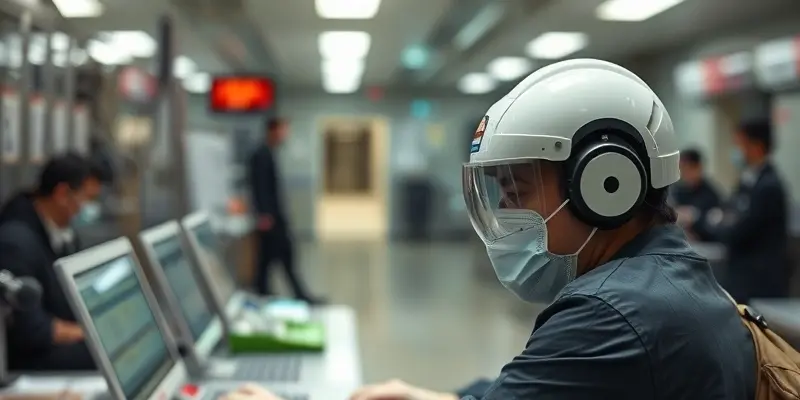Psychological Strategies for Para Athletes: Mastering Injury Prevention, Recovery & Motivation
By the GymPulse Lead Trainer – 10+ years in athlete training, wellness, and performance optimization
As a fitness enthusiast or athlete, you know your body is your most valuable tool. But have you considered how much your mind drives your physical progress—especially when facing injuries? For para athletes, psychological strategies are not just helpful—they’re foundational to safe recovery and sustained motivation. As a coach and sports science specialist, I’ve seen firsthand how mindset can make or break a comeback.
Let’s explore how para athletes (and all of us) can harness mental strength to prevent injuries, recover smarter, and stay motivated every step of the way.
The Psychological Challenges of Injury
An injury isn’t just a physical setback—it’s an emotional ride. Ever felt deflated after a training mishap? That’s normal. Many para athletes describe:
- Demotivation and frustration: Suddenly, usual routines stop. It’s easy to feel lost or anxious.
- Social isolation: Rehab can separate you from teammates and that sense of belonging.
- Fear of the future: Worries about recovery, capabilities, and re-injury are common.
For para athletes, these feelings can be even more acute due to unique physical, medical, and social challenges. Recognizing and normalizing these emotions is the first step—because you’re not alone.
Key Psychological Strategies for Recovery & Return
Autonomous vs. Controlled Motivation
Not all motivation is created equal. Research shows that athletes who return because they truly want to (autonomous motivation)—for personal growth or love of sport—heal faster and feel better. Those who return out of guilt or pressure (controlled motivation) lose steam quickly and recover less successfully.
Practical tip: Ask yourself, “Why do I want to get back?” Write down goals that excite you—not just ones imposed by coaches or competitions.
Therapy & Coping Skills
Therapies like Rational Emotive Behavioural Therapy (REBT) help reframe negative thoughts, reduce stress, and boost self-awareness. Simple coping skills—goal setting, visualization, mindfulness—can lessen anxiety and improve focus during rehab.
- Example: Spend 2 minutes before bed visualizing a successful return to practice, focusing on positive sensations.
The Power of a Team Approach
Physical therapists help your body. But involving coaches, sports psychologists, and even nutritionists creates a network of support. This “whole-person” approach is proven to keep athletes more engaged and less likely to drop out during tough times.
Practical Recovery & Prevention Tips
Staying Motivated in Rehab
- Set micro-goals: Celebrate small wins, like completing extra reps or sticking to your nutrition plan for a week.
- Use gratitude journaling: Writing down three positives each day can build resilience.
- Keep socially connected: Join team meetings or virtual hangouts, even if you’re sidelined.
Supporting Nutrition & Routine Through Psychology
Motivation isn’t just for physiotherapy—it’s crucial for diet too. Use habit trackers or buddy systems to stick with personalized nutrition, especially when recovery feels slow.
- Try this: Share your meal plan or progress with a trusted teammate for accountability.
Self-Compassion & Peer Support
Recovery is rarely linear. Allow yourself patience and kindness if you hit a plateau. Sharing frustrations and success stories with peers can reduce feelings of isolation.
Returning Safely to Sport
Overcoming Fear of Re-Injury
It’s normal to feel anxious stepping back onto the field. Gradual exposure—slowly increasing challenge—paired with positive self-talk (“I am prepared, I am strong”) helps rebuild confidence.
- Visualization: Imagine a successful, safe performance before your real comeback.
Monitoring Motivation and Mental Health
Keep regular check-ins—with yourself and your team. If frustration or apathy creeps in, address it early. Tools like mood or motivation scales can help catch problems before they snowball.
Why Psychological Strategies Make All the Difference
Integrating psychological strategies with physical rehab isn’t just “nice to have”—it’s essential for every athlete, especially para athletes. Nurturing your mindset primes you for safer returns, fewer setbacks, and—most importantly—a stronger, healthier relationship with your sport.
Remember: Injury can change your path, but with the right mindset, support, and strategies, it never has to stop your journey.
If you found these strategies helpful or have your own tips to share, join the conversation at GymPulse Club. Let’s keep each other resilient, motivated, and strong—together.

